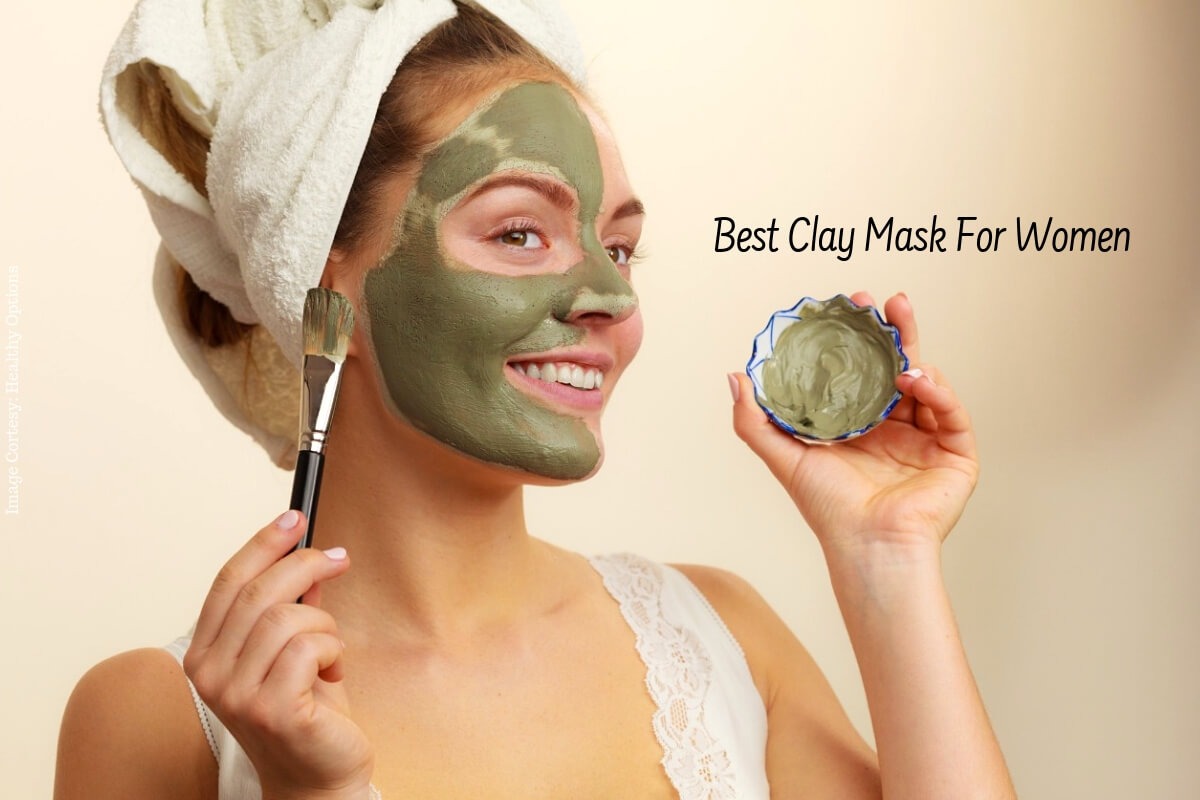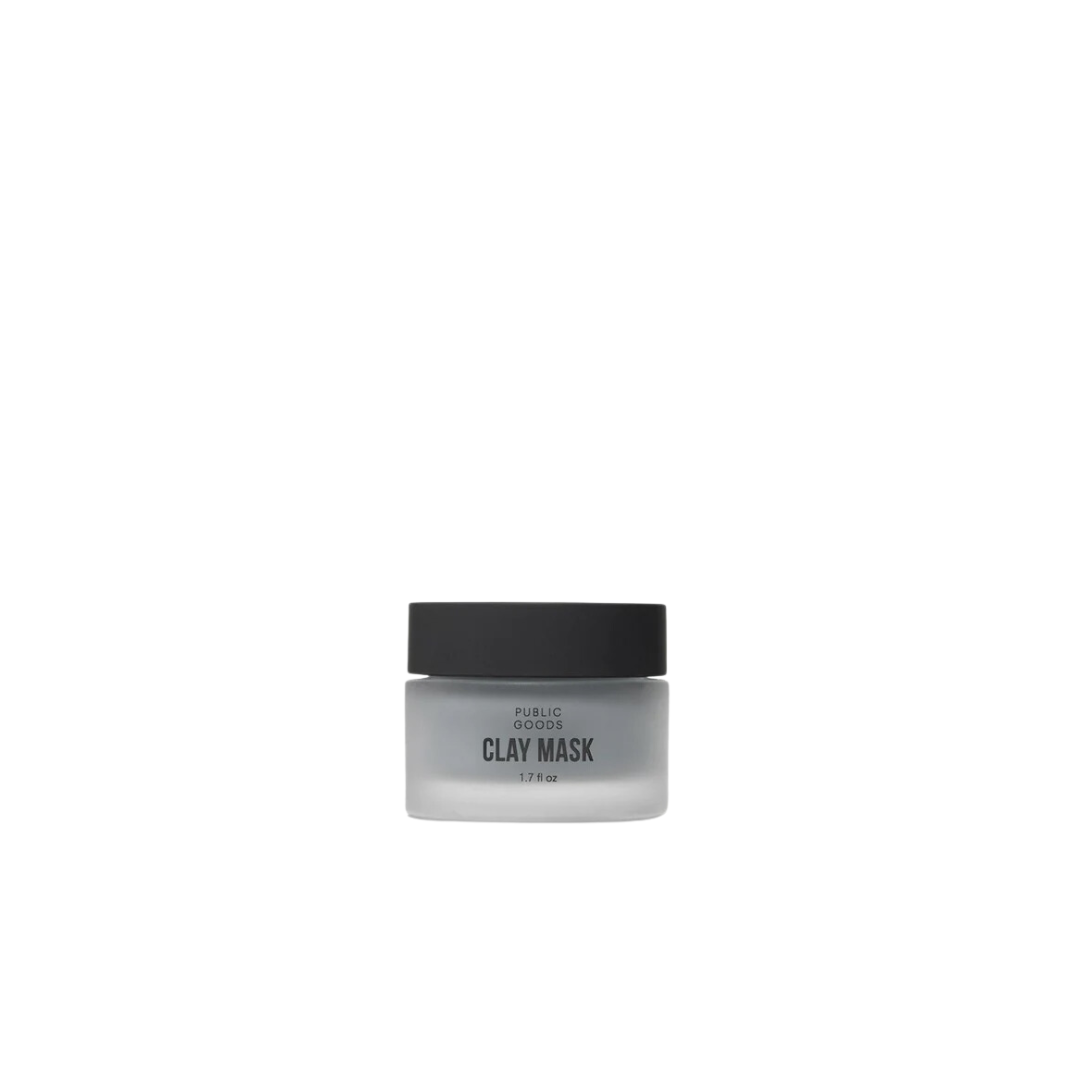Best Clay Mask: The Ultimate Guide To Choosing The Perfect Clay Mask For Your Skin
Clay masks have become a staple in skincare routines worldwide due to their incredible benefits for all skin types. Whether you're dealing with oily skin, clogged pores, or dullness, the right clay mask can work wonders. But with so many options available, how do you choose the best clay mask for your skin? In this comprehensive guide, we’ll break down everything you need to know about clay masks and help you make an informed decision.
From understanding the benefits of different clay types to identifying the right mask for your specific skin concerns, this article will walk you through the essentials. Whether you're a skincare enthusiast or just starting your journey, this guide will provide valuable insights to enhance your skincare routine.
As we dive deeper into the world of clay masks, you’ll learn how to select the best clay mask tailored to your unique skin type and concerns. Let’s get started!
Read also:Deadliest Catch Deaths The Dangers Of The Deadliest Job On The High Seas
Table of Contents
- Introduction to Clay Masks
- Types of Clay Masks and Their Benefits
- Best Clay Mask for Different Skin Types
- How to Use Clay Masks Effectively
- Benefits of Using Clay Masks
- Common Mistakes When Using Clay Masks
- Best Clay Masks on the Market
- Tips for Choosing the Right Clay Mask
- FAQ About Clay Masks
- Conclusion
Introduction to Clay Masks
Clay masks have been used for centuries due to their natural ability to cleanse, detoxify, and rejuvenate the skin. These masks are formulated with various types of clay, each offering unique benefits. From kaolin clay to bentonite and rhassoul, each type targets specific skin concerns, making it essential to choose the best clay mask suited to your needs.
Clay masks work by drawing out impurities, absorbing excess oil, and exfoliating dead skin cells, leaving your skin feeling refreshed and revitalized. Understanding the different types of clay and their properties is crucial in selecting the right mask for your skin type.
Types of Clay Masks and Their Benefits
Kaolin Clay Mask
Kaolin clay is one of the gentlest types of clay, making it ideal for sensitive skin. It effectively removes dirt and oil without stripping the skin of its natural moisture. Kaolin clay masks are perfect for those with dry or mature skin who want a mild yet effective cleansing experience.
Bentonite Clay Mask
Bentonite clay is known for its powerful detoxifying properties. It absorbs toxins and impurities from the skin, making it an excellent choice for individuals with oily or acne-prone skin. This type of clay mask can help reduce inflammation and soothe irritated skin.
Rhassoul Clay Mask
Rhassoul clay originates from Morocco and is renowned for its ability to improve skin elasticity and hydration. It cleanses the skin deeply while maintaining its natural moisture balance, making it suitable for all skin types. Rhassoul clay masks are particularly beneficial for those seeking anti-aging benefits.
Best Clay Mask for Different Skin Types
Choosing the best clay mask depends on your skin type and specific concerns. Below is a breakdown of the ideal clay masks for different skin types:
Read also:Discover The Allure Of Sexy Katharine Mcphee A Comprehensive Guide
- Oily Skin: Opt for bentonite or French green clay masks to control excess oil and minimize pores.
- Dry Skin: Kaolin or rhassoul clay masks are gentler and help maintain hydration while cleansing.
- Combination Skin: A mix of kaolin and bentonite clay can target both oily and dry areas effectively.
- Sensitive Skin: Choose kaolin clay masks for a mild yet effective cleansing experience.
- Aging Skin: Rhassoul clay masks are excellent for improving skin elasticity and reducing fine lines.
How to Use Clay Masks Effectively
Using a clay mask correctly is key to achieving optimal results. Follow these steps for the best experience:
- Cleanse your skin thoroughly to remove dirt and makeup.
- Apply a thin layer of the clay mask evenly across your face, avoiding the eye area.
- Let the mask sit for 10-15 minutes or until it dries completely.
- Rinse off with lukewarm water and pat your skin dry with a clean towel.
- Follow up with a moisturizer to lock in hydration.
Benefits of Using Clay Masks
Clay masks offer numerous benefits for the skin, including:
- Deep Cleansing: They remove dirt, oil, and impurities from the pores.
- Exfoliation: Clay masks gently exfoliate dead skin cells, promoting smoother skin.
- Detoxification: They draw out toxins and pollutants, leaving the skin refreshed.
- Hydration: Some clays, like rhassoul, help maintain skin hydration while cleansing.
- Anti-Aging: Clay masks can improve skin elasticity and reduce the appearance of fine lines.
Common Mistakes When Using Clay Masks
While clay masks are incredibly beneficial, there are some common mistakes to avoid:
- Overusing: Using clay masks too frequently can lead to dryness and irritation.
- Leaving on Too Long: Allowing the mask to dry completely can cause the skin to become overly tight and dehydrated.
- Not Moisturizing Afterward: Failing to apply a moisturizer after using a clay mask can leave the skin feeling dry and uncomfortable.
- Using the Wrong Type: Choosing a clay mask unsuitable for your skin type can result in adverse effects.
Best Clay Masks on the Market
Here are some of the top-rated clay masks available today:
- L'Occitane Pure Clay Mask: A luxurious option featuring kaolin and rhassoul clays for deep cleansing.
- GlamGlow Supermud Clearing Treatment: A potent bentonite clay mask that targets acne and blackheads.
- Dr. Hauschka Med Clarifying Clay Mask: A gentle yet effective kaolin clay mask for sensitive skin.
- First Aid Beauty Pure Skin Mineral Mask: A multi-clay formula that combines kaolin, bentonite, and rhassoul for all skin types.
Tips for Choosing the Right Clay Mask
When selecting the best clay mask, consider the following tips:
- Identify your skin type and specific concerns.
- Research the type of clay used in the mask and its benefits.
- Look for masks with natural and organic ingredients.
- Read customer reviews and ratings to gauge effectiveness.
- Choose a reputable brand known for quality skincare products.
FAQ About Clay Masks
How often should I use a clay mask?
It’s recommended to use a clay mask once or twice a week, depending on your skin type and concerns. Overusing can lead to dryness and irritation.
Can clay masks help with acne?
Yes, clay masks, particularly those with bentonite or French green clay, can help reduce acne by controlling oil production and unclogging pores.
Are clay masks safe for sensitive skin?
Gentle clays like kaolin are safe for sensitive skin. Always perform a patch test before using a new product to ensure compatibility.
Conclusion
Clay masks are an essential part of any skincare routine, offering a range of benefits from deep cleansing to anti-aging. By understanding the different types of clay and their properties, you can choose the best clay mask tailored to your skin type and concerns.
Remember to use clay masks appropriately and incorporate them into your routine for optimal results. For more skincare tips and product recommendations, explore our other articles and stay updated on the latest trends in the beauty world.
Don’t forget to share your thoughts and experiences in the comments below. And if you found this article helpful, feel free to share it with your friends and family!


